Medically compromised patient with complex endodontic-restorative needs
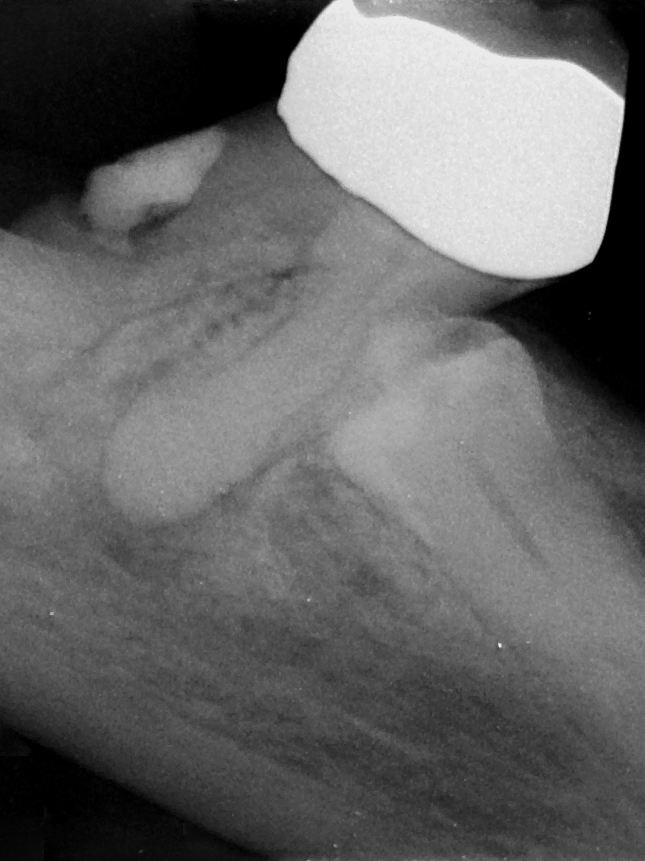
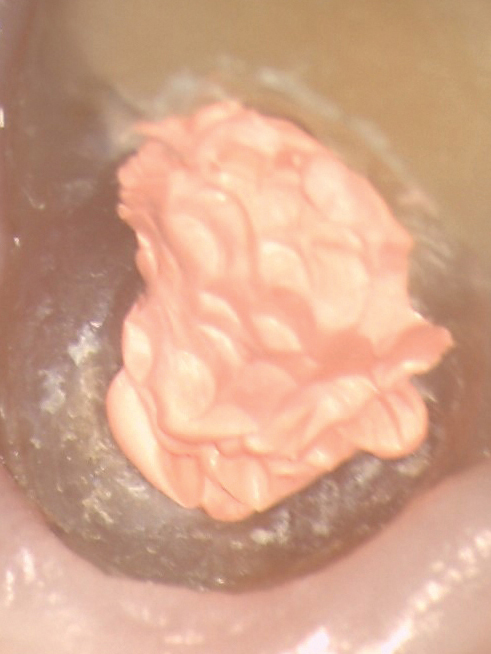
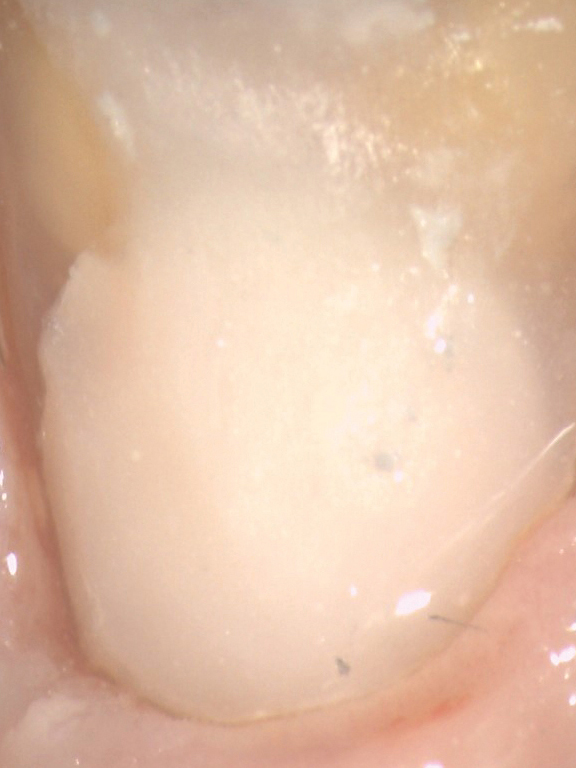
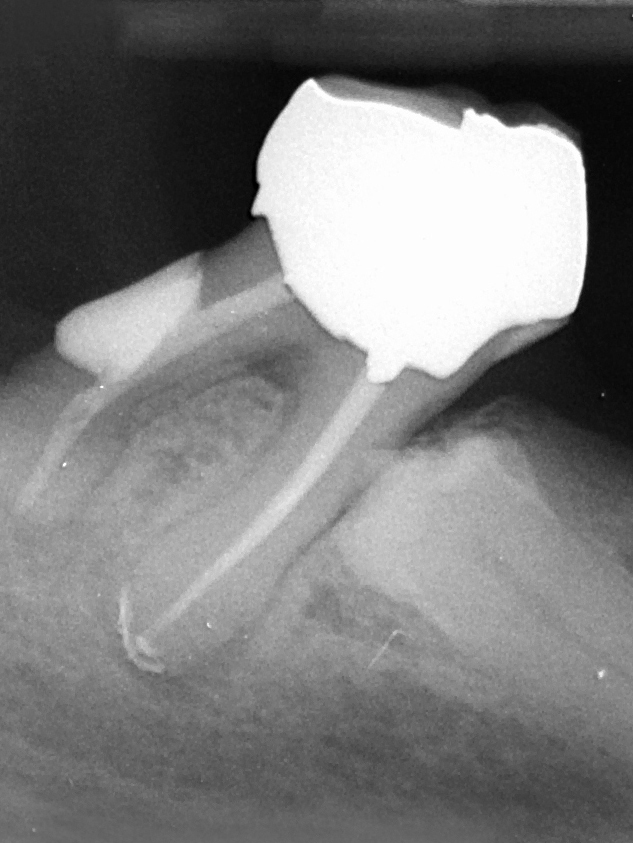
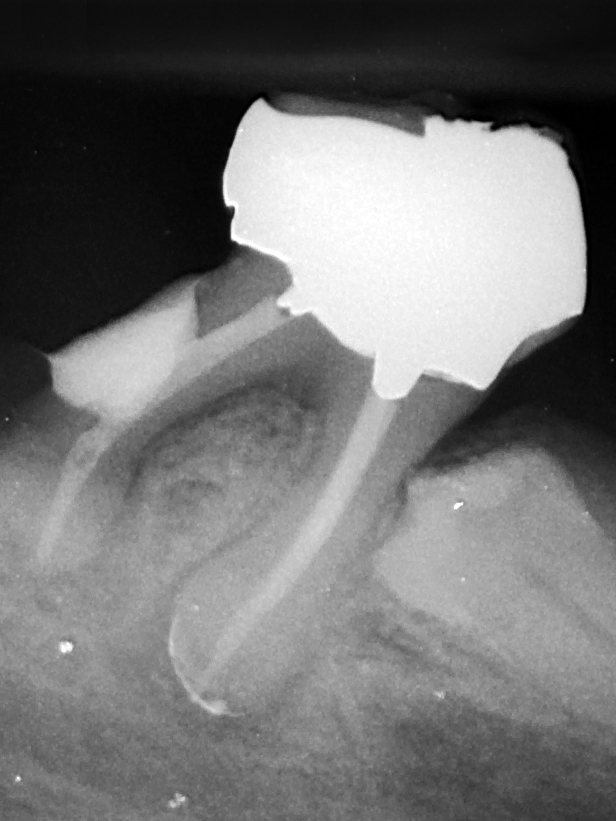
Patient Considerations
- Medical History: Complex medical history/serious illness/disability
Diagnostic and Treatment Considerations
- Position in the arch: 2nd or third molar; extreme inclination (> 30 degrees)
- Tooth isolation: Extensive pretreatment modification (restoration of distal caries)
An elderly patient presented with a symptomatic mandibular second molar. Their medical history indicated that they were receiving a regimen of IV bisphosphonate therapy administered every three months. Preoperative evaluation revealed that tooth #31 was extremely inclined, had subgingival distal root caries and approximated an impacted bicuspid. Additionally, the tooth was restored with a crown that served as the key abutment for a mandibular removable denture. Clinical testing supported a diagnosis of pulpal necrosis with symptomatic apical periodontitis.
This case exhibits numerous complicating factors creating an extremely high level of difficulty. Due to the risk of osteonecrosis (MRONJ), extraction was not a favorable treatment option. Prior to endodontic therapy, the distal caries was removed and restored without eliminating access to the canal space. Due to the severe inclination, endodontic treatment was completed through the mesial rest seat. A one year follow-up exhibited excellent healing.